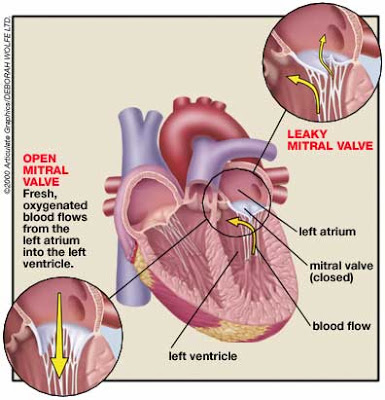 Many of my patients come to see me complaining of chest pain. These patients are frequently young, otherwise healthy and “freaking out” about why they should have chest pain.
Many of my patients come to see me complaining of chest pain. These patients are frequently young, otherwise healthy and “freaking out” about why they should have chest pain.
If the the diagnosis is mitral valve prolapse, take heart.
Mitral valve prolapse is a benign (not serious) condition which occurs in up to 5% of the general population. It is nothing more than slight redundancy or “floppyness” of the tissue of the mitral valve. The mitral valve is the valve that separates the left chambers of the heart.
People with mitral valve prolapse or MVP are born with the condition and typically live normal healthy lives.
The pain in MVP occurs when the mitral valve closed and pulls on the papillary muscle. Unlike angina or chest pain from coronary artery disease, MVP pain occurs atypically or at rest. Patients often complains that they are able to exercise without pain yet they develop chest pain at rest, while watching tv or “hanging out”. The chest pain from MVP is mediated by chemical stimuli to the heart and occurs more commonly when you have more stress such as when you don’t sleep enough, drink too much caffeine, or are stressed out. Additionally, dehydration can make you more symptomatic because as the heart is less full, it contracts more vigorously, and allows the valve to prolapse more.
How do we treat MVP? Most patients are really only looking for an answer as to why they have symptoms. Once they are reassured that the condition is benign they frequently prefer to not take pills. Measures such as hydrations, avoiding stimulants, and getting enough rest may be enough to control symptoms. However, if symptoms persist, medications known as beta-blockers may be used to treat symptoms.
